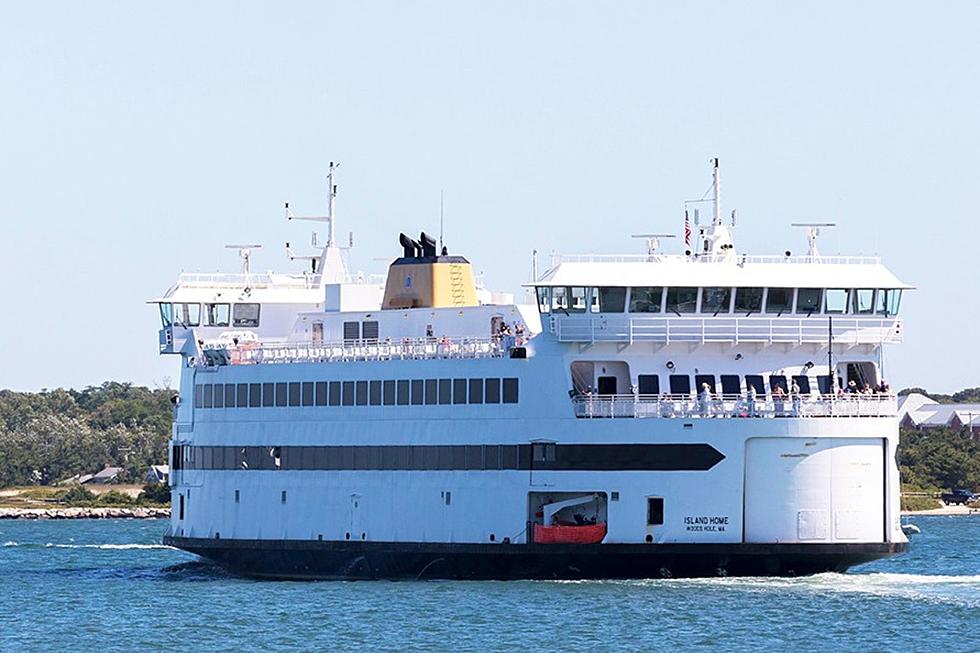
Keating on Immigration Reform, Martha’s Vineyard Response to DeSantis
Last week, Florida Governor Ron DeSantis thrusted Martha's Vineyard into the forefront of the conversation immigration policy by chartering flights to send 50 Venezuelan migrants to Edgartown.
Democrat Congressman Bill Keating, who represents most of Southeastern Massachusetts as well the Cape and Islands in Congress, lauded the islanders for responding rapidly and with overwhelming support and solidarity.
"People don't understand Martha's Vineyard," Keating said in an appearance on WBSM's SouthCoast Tonight. "They think it's Lifestyles of the Rich and Famous which in the summertime, when the summer people come in, of course it is, but the people that live there stitch together their livelihood together season to season. It's hard to get by."

"They actually had to put a public request to have people stop bringing things because it started causing traffic jams," he said. "It was extraordinary. Regular people, not rich people, regular people came to the call."
Conversely, Keating lambasted DeSantis for transporting migrants to the island under what he described as fraudulent circumstances. He cited the pamphlets the migrants were given which gave the appearance that they were commissioned by the Commonwealth and promised them benefits that they weren't eligible for, and the fact they believed they were going to Boston.
The congressman also alleged that the money used to execute this operation was taken from Florida's allocation of American Rescue Plan Act (ARPA) funds, and said that it was recently revealed that the DeSantis Administration paid recruiters a "bird dog free" to induce migrants into boarding the plane.
Just before his appearance on SouthCoast Tonight, Keating had met with Senator Chris Coons (D-Delaware) and Senator Mark Warner (D-Virginia). One of the topics of discussion was how the lack of meaningful immigration reform is negatively impacting their respective home states, particularly when it comes to the need to address a historic national labor shortage.
Keating left the meeting increasingly hopeful immigration reform will be addressed in Congress' next session.
"(The U.S. Chamber of Commerce) estimated we're going to lose over $1 trillion in the next nine years in revenue to our country because we don't have enough workers," Keating said. "The birth rate is like 1.7 percent, I think, and our economy grows and we don't have people for the jobs. That's the reality of it."
Keating said that the process for legalized immigration, which can take a decade or longer, is too long and arduous. He said more investment can and should be made to diverting immigration judges and other resources to the southern border to help expedite the process of seeking asylum or other designated immigration status. Keating posited that this in turn will help the economy by allowing these individuals to legally enter the labor market.
Besides the expressed interest from fellow members of Congress, Keating cited polling showing overwhelming support for reform as well as coalitions of organizations across the political spectrum as another potential galvanizing force behind making long-elusive immigration policy gains.
"There's a win-win situation in there," Keating said. "If we can only step aside from some of the divisiveness and get what we can and realize everyone's not going to get everything that they think should be done."
After the conversation on immigration reform, Keating – who serves on the House Armed Services Committee, the House Committee on Foreign Affairs, and chairs the Subcommittee on Europe, Eurasia, Energy, and the Environment – also discussed the ongoing war in Ukraine. He then highlighted the healthcare savings people will see with the recent passage of the Inflation Reduction Act.
Listen to Chris McCarthy and Marcus Ferro's full conversation with Congressman Bill Keating on SouthCoast Tonight.
LOOK: See how much gasoline cost the year you started driving
LOOK: The most extreme temperatures in the history of every state
More From WBSM-AM/AM 1420









